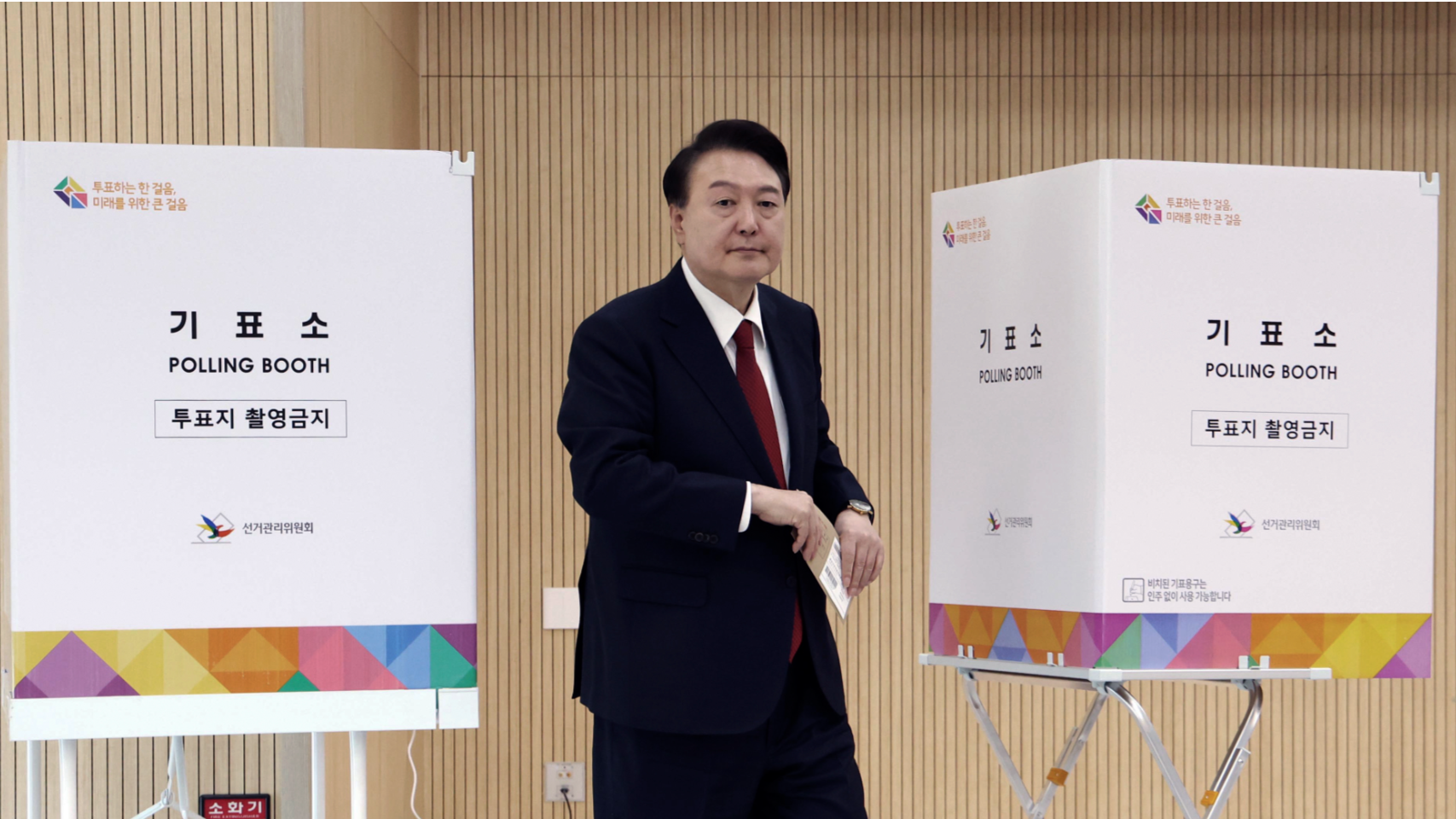
Republic of Korea President Yoon Suk-yeol said on April 11 that he would carry out reforms after the main opposition won a landslide victory in the parliamentary election.
“I will strive to reform state affairs and stabilize the economy and improve people’s livelihoods,” said Presidential Chief of Staff Lee Kwan-seop, delivering Yoon’s message in a televised briefing.
Yoon said he would humbly accept the will of the people in the general election, according to Lee.
With all votes counted, the liberal opposition Democratic Party, or DP, won 161 out of 254 directly contested constituency seats, while Yoon’s ruling People Power Party, or PPP, obtained 90 seats, tentative results from the National Election Commission showed on April 11.
Including proportional seats, the DP and its proportional representation satellite party won 175 seats in the 300-member National Assembly.
In total, liberal parties won 189 seats, including 12 proportional seats won by the nascent Korea Innovation Party founded by former justice minister Cho Kuk.
The PPP, together with its satellite party, won a total of 108 seats.
Despite its overwhelming victory, the opposition bloc fell short of securing a super-majority of 200 seats which would have enabled it to overturn presidential vetoes, rewrite the constitution, and even impeach the president.
The result indicates that Yoon, in the last three years of his single five-year term, will struggle to pursue his agenda with ROK’s executive and legislative branches split between two political parties in a divided government.
Prime Minister Han Duck-soo and all senior presidential secretaries, except those in the Office of National Security, offered to resign to take responsibility for the election defeat, according to the presidential office.
DP leader Lee Jae-myung said that he is grateful for the people’s support and called winning the general election, not a victory for the party but “a great victory for the people”.
“The DP will actively take the lead in solving problems related to people’s livelihoods,” said Lee on April 11 at a disbanding ceremony for the party’s election committee.
Yoon’s approval rating has been hovering around 30 percent amid failure to address issues such as inflation and a series of corruption scandals.
“The election results have starkly reflected the public’s strong dissatisfaction with the first two years of President Yoon’s administration, placing him in a very difficult predicament,” said Yoo Sung-jin, a professor at Ewha Womans University's Scranton College.
Yoo said the election result showed that voters primarily hold the president and the ruling party responsible for the current political and economic situation.
“Without a significant change in governance style, implementing the president’s agenda will be challenging,” said Yoo.
Despite heightened polarization between the two main parties and a National Assembly dominated by the opposition, Lam Peng Er, principal research fellow of the Korea Centre of the National University of Singapore’s East Asian Institute, said Yoon may yet push forward his policy agenda.
“I will not be so pessimistic by saying that the Yoon administration is doomed to become a lame duck for the next three years,” said Lam. “It really depends on the skill of the leaders of the People Power Party to negotiate with the other parties.”
Noting that general elections mainly focus on domestic issues, Lam said he expects Yoon to remain powerful in terms of setting the direction for foreign policy.
Yoon will likely continue his policy to reinforce relations with the United States and Japan while keeping a hardline stance towards Pyongyang, said Lam, adding that the opposition-led legislature will still have a say in the national budget for diplomatic activities and defense.
This year’s voter turnout marked the highest for general elections since 1992, with around 29.66 million, or 67 percent of the 44.28 million eligible voters cast their ballots on April 10, tentative results showed.
In the previous parliamentary election in 2020, the turnout was 66.2 percent.
Contact the writer at kelly@chinadailyapac.com


